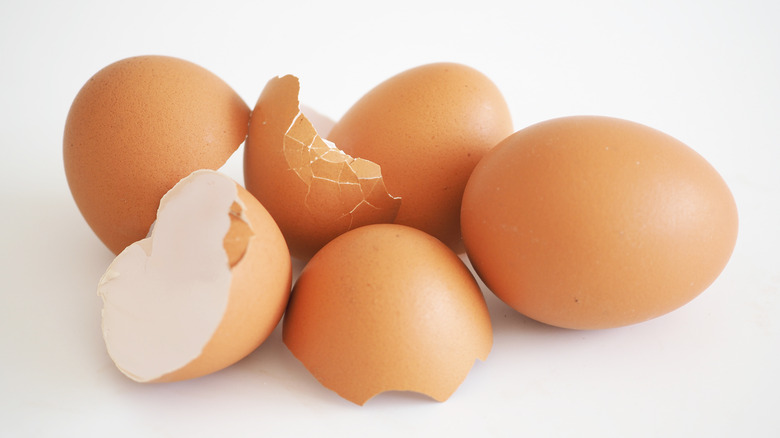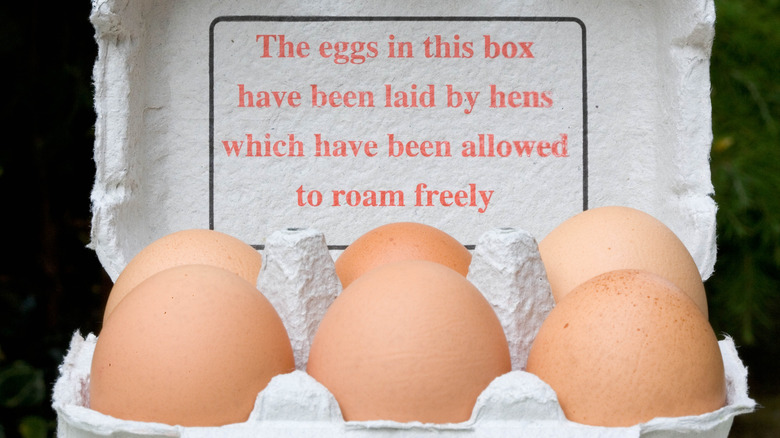Why You Should Never Get Rid Of Eggshells In The Garbage Disposal
Garbage disposals are a useful kitchen tool. They help eliminate garbage by grinding up food waste small enough that it can pass through the pipes without clogging them.
The garbage disposal was first invented in 1927, according to Universal Home Experts. And by 1938, they state, the design was solidified and the InSinkErator company was started. After World War II, sales started booming, and today, garbage disposals are common in homes across the United States and around the world. Consumer Reports states that nearly half of United States homes have a garbage disposal installed.
If you are unsure if something is safe to toss down the drain, a quick search online can tell you what could potentially harm your pipes. There are a few things you should never put down the garbage disposal – pasta, bones, paint, coffee grounds, and potato peels, according to Family Handyman. But there is one thing you may not consider to be harmful: Eggshells.
Ground up shells can settle in the pipes
According to Hunker, some plumbers recommend tossing eggshells down the garbage disposal and grinding them up. They state that this could be beneficial for cleaning the inner grinding mechanisms of the garbage disposal, thanks to the coarse texture of the shells. However, the idea that this benefits the garbage disposal is just a myth — and they could actually do more harm than good.
Garbage disposals don't use blades to grind up food; They rely on impellers, which are tiny, moving parts that swivel around, crushing food, reports EatingWell. Once the eggshells are fully ground up, they could get stuck in the pipes, and create a buildup, per Hunker. Additionally, if the egg membrane is still stuck to the eggshell when you toss it down the sink, that membrane could attach itself to the impeller and cause a backup (via Pete the Plumber).
The next time you scramble some eggs or bake a cake, think twice before tossing those eggshells down the sink — they could be causing problems in the long run.

